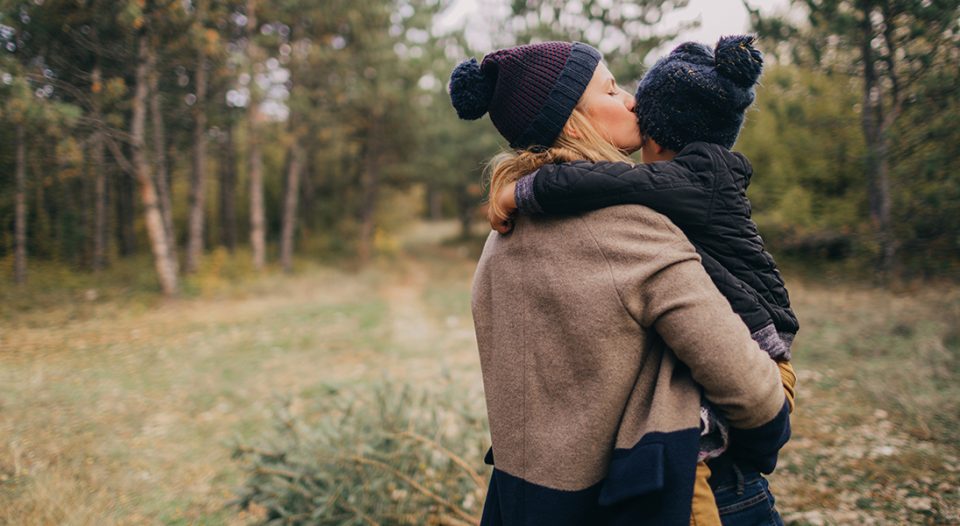Back in 2020, a month into COVID-19 stay-at-home orders, my 5-year-old son already had a sense of what had been lost. He knew about the places we could no longer go and the people we could no longer hug for fear of sickness and death.
One day, while we were eating breakfast, he furrowed his brow and said, “You know, Momma, the virus is bad, but there are good things too.” Lifting his eyes from his cereal to meet mine, he added, “I like that we have more time at home to read books and snuggle.” I smiled, got up, kissed his cheek and responded, “I like that too.”
Amid uncertainty and hardship, my son knew that loss wasn’t the whole story. He inspired me to embrace and build more family-centered practices when so much felt out of control.
Several months later, I was checking in with a group of friends on Zoom. A few of them were pastors, and most of them were parents. While we grieved what would be lost at Christmastime, my mind wandered to my son’s words. I had a hunch that children might be our prophets—they could remind the adults that, although Christmas would be different, it could still be magical if we approached it with childlike faith.
As a gift to weary adults, I partnered with the ecumenical ministry Church Anew, creating a video for its “Christ | Christmas | Covid” virtual conference. I asked kids via video to think about Christmas during COVID-19 and share with the others what excited them about the holiday.
Wrapped up in long-held traditions, self-imposed holiday expectations and the bustle of consumerism as Christmas approaches, we sometimes forget to stop and ask, what do I need?
Of course, they answered, “Presents,” both given and received. (Clementine, 7, explained in detail how Santa would wear a mask to keep everyone safe.) The kids were excited about other things, too, like wearing comfy clothes while worshiping in their living rooms, eating “really good food,” building gingerbread houses, drinking hot chocolate and assembling jigsaw puzzles. Some were glad they wouldn’t have to drive for hours to visit relatives. Others looked forward to calm moments at home with their families while taking a break from Zoom school.
What I heard from the kids was a yearning for quiet intimacy, free from a schedule.
Wrapped up in long-held traditions, self-imposed holiday expectations and the bustle of consumerism as Christmas approaches, we sometimes forget to stop and ask, what do I need?
We forget what brings us closer to Christ. We think “more” will feel like more, but too much stuff often begets emptiness. The kids I met were shifting our adult, cluttered view of Christmas toward simplicity.
Listening to their delightful answers sparked memories of my own childhood Christmases. My family celebrated over two days filled with festivities. Our worship space was packed with people all dressed up, the sanctuary adorned with garlands and candles. At home, we had large, raucous gatherings with extended family on both my mom’s and my dad’s sides, as well as an annual party where Santa made an appearance.
Instead of rushing back to the rush, let us cultivate and embrace time, calm and empathy.
Yet my favorite moments were the quiet ones. I loved putting on pajamas and curling up with my four siblings in my parents’ bed to read The Polar Express. As my congregation lit candles and sang “Silent Night,” I could feel Christ’s presence. My heart welled with hope, and peace washed over my body.
The impact of simplicity followed me into adulthood. The two Christmases that deepened my faith the most were those I spent volunteering with ELCA ministries.
Right after college, while participating in the Urban Servant Corps in Denver, I lived in intentional community and worked at a day shelter for women. Homelessness and hunger take no days off, so the shelter stayed open over the holidays, and for the first time I spent the holiday away from home. On Christmas Day, I basked in the quiet of my empty volunteer house, which was normally shared by 11 of us. I read, called home, rested and hiked. Christ drew near.
A few years later, I served in rural Uruguay through the Young Adults in Global Mission program. Christmas Day in Uruguay was slow and uneventful. I spent most of the day by myself, walking through the fields with the cows. A sense of holiness accompanied me. Looking out over the rolling hills, the neighboring farms and their rice fields, I imagined Jesus’ birth in a new way.
A renewed look at simplicity
This time of pandemic has reintroduced me to simplicity, and children helped me see the abundance within it. Without big gatherings in 2020, my family and I dwelled in our pajamas, really tasted our food and allowed time to unfold. Yes, we had less food, fewer people and not as many presents, but there was more intentionality, creativity and presence. We did one thing at a time and more deeply enjoyed activities that make the season festive. Christ enveloped us in silence and wonder.
This Christmas season, we’re still grappling with the pandemic. Though circumstances have shifted, we have another chance to name grief and build resiliency with our kids and each other. We might not experience the drama of a full brass ensemble or crowded pews in our worship context, but we can all light a candle and sing “Silent Night” wherever our feet are planted.
Instead of rushing back to the rush, let us cultivate and embrace time, calm and intimacy. Let us dwell God’s boundless love and feed our faith through simplicity, remembering the hushed hope that is the essence of Jesus’ birth.





